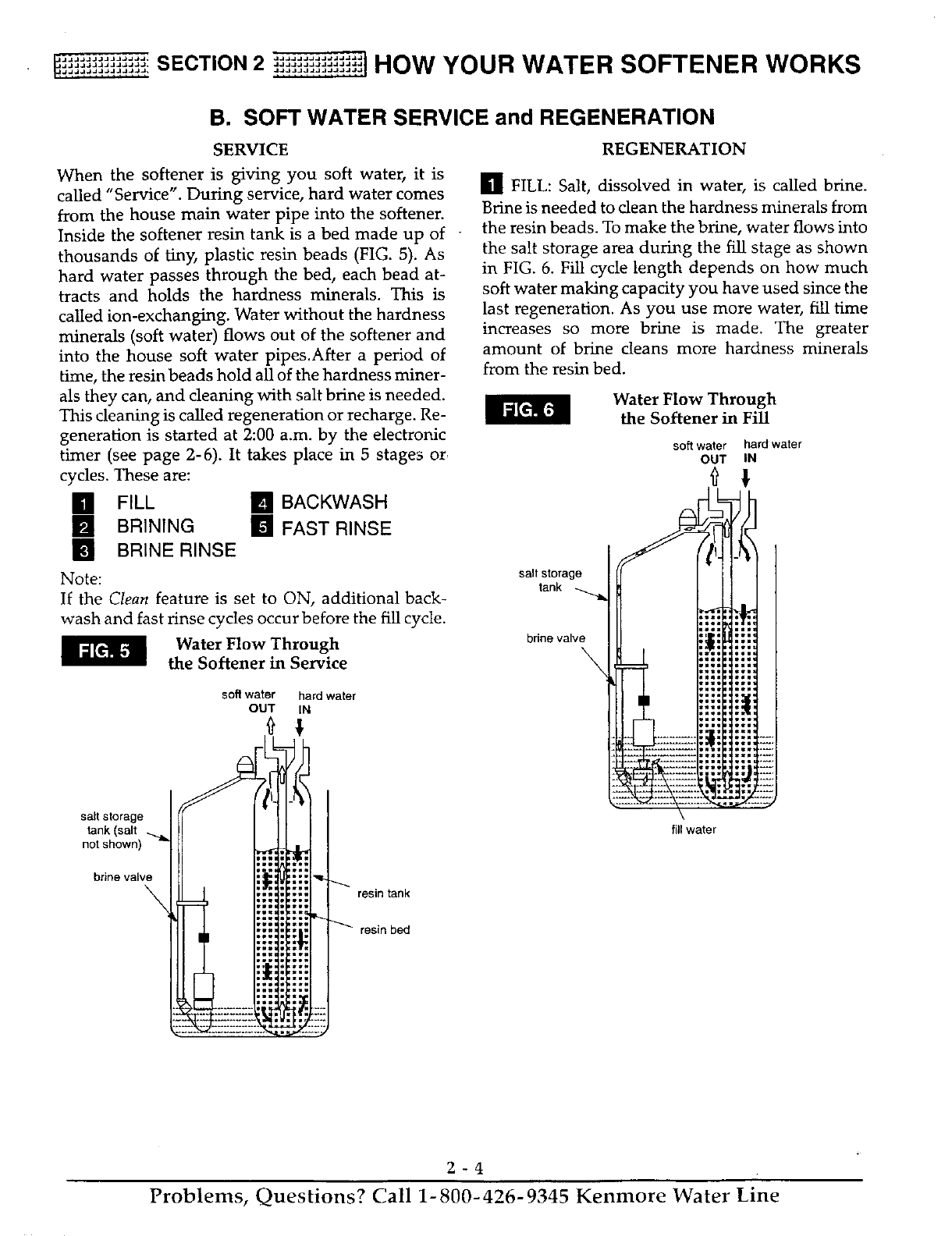
_,_=_+ SECTION2 ",':,_,_,y,y'_t'_lHOW YOUR WATER SOFTENER WORKS
B. SOFT WATER SERVICE and REGENERATION
SERVICE
When the softener is giving you soft water, it is
called "Service". During service, hard water comes
from the house main water pipe into the softener.
Inside the softener resin tank is a bed made up of
thousands of tiny, plastic resin beads (FIG. 5). As
hard water passes through the bed, each bead at-
tracts and holds the hardness minerals. This is
called ion-exchanging. Water without the hardness
minerals (soft water) flows out of the softener and
into the house soft water pipes.After a period of
time, the resin beads hold all of the hardness miner-
als they can, and deaning with salt brine is needed.
This cleaning is called regeneration or recharge. Re-
generation is started at 2:00 a.m. by the electronic
timer (see page 2-6). It takes place in 5 stages or.
cycles. These are:
I ILL i BACKWASH
BRINING FAST RINSE
[] BRINE RINSE
Note:
If the Clean feature is set to ON, additional back-
wash and fast rinse cycles occur before the fill cycle.
Water Flow Through
the Softener in Service
salt storage
tank (salt
brine valve
\
soft water hard water
OUT IN
resin tank
resin bed
REGENERATION
[] FILL: Salt, dissolved in water, is called brine.
Brine is needed to dean the hardness minerals from
the resin beads. To make the brine, water flows into
the salt storage area during the fill stage as shown
in FIG. 6. Fil! cycle length depends on how much
soft water making capacity you have used since the
last regeneration. As you use more water, fill time
increases so more brine is made. The greater
amount of brine deans more hardness minerals
from the resin bed.
Water Flow Through
the Softener in Fill
salt storage
tank
brine valve
\
soft water hard water
OUT IN
\
fillwater
2-4
Problems, Questions? Call 1-800-426-9345 Kenmore Water Line
